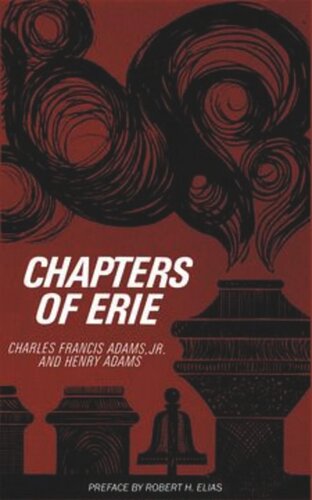

Most ebook files are in PDF format, so you can easily read them using various software such as Foxit Reader or directly on the Google Chrome browser.
Some ebook files are released by publishers in other formats such as .awz, .mobi, .epub, .fb2, etc. You may need to install specific software to read these formats on mobile/PC, such as Calibre.
Please read the tutorial at this link: https://ebookbell.com/faq
We offer FREE conversion to the popular formats you request; however, this may take some time. Therefore, right after payment, please email us, and we will try to provide the service as quickly as possible.
For some exceptional file formats or broken links (if any), please refrain from opening any disputes. Instead, email us first, and we will try to assist within a maximum of 6 hours.
EbookBell Team

4.1
90 reviewsChapters of Erie is a classic account of ruthless business practices in nineteenth-century America—in particular, Jay Gould and James Fisk's successful effort to gain control of the Erie Railroad in 1868 and subsequent attempt to corner the American gold market, which resulted in the "Black Friday" panic of September 24, 1869.Seizing upon the opportunity provided by the scandals to expose the links between financial malpractice on Wall Street and political favoritism and corruption, Henry Adams and his older brother Charles Francis Adams, Jr., traveled to New York and Washington to interview the participants (including Fisk), observe the Congressional hearings on the gold conspiracy, and reconstruct in forensic detail the machinations that had shaken the nation's economy. First appearing in a series of articles in the Westminster Review and the North American Review in 1870 and 1871, the results of the Adams brothers' investigative journalism were published as a book in 1886. Reissued by Cornell University Press in 1956 with a preface by Robert H. Elias, Chapters of Erie remains a well-documented, perceptive, and sometimes sardonic examination of the relationship between business and politics in America—and a warning about the dangers posed by unregulated corporations "to override and trample on law, custom, decency, and every restraint known to society, without scruple."